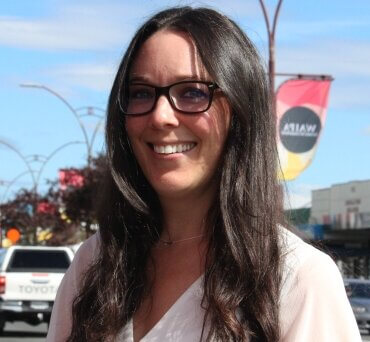
Janine Krippner
Thinking about time as someone who studies the Earth can get a bit weird.

Janine Krippner
Volcanic activity spans hundreds of thousands, and even millions of years. We consider a volcano that has erupted within the past 10,000 or so years young and potentially active. Volcanic eruptions can last hours, months, years, decades, or longer. Pyroclastic flows can devastate a landscape in seconds to minutes. Magmatic gases violently expanding and blowing the magma to rock and ash takes split seconds.
A human lifetime is a very short time span when thinking about volcanoes. We are lulled into a false sense of security when we haven’t seen a particular volcano erupt in a while, and this can lead to not prioritising planning. The funding, expertise, and local experience needed to plan for an eruption may, understandably, feel less important when we have very real threats like a cost-of-living crisis and dangerous roads to contend with. As someone who has been impacted by the recent job and funding cuts, I understand. For me, the next few months feel utterly daunting with the uncertainty and lack of a plan, even when thinking about volcanic time scales.
I was recently one of the first to an accident scene and I felt seconds stretch out as I responded as best I could to help an injured person. What felt like a very long time before the ambulance arrived turned out to be only half an hour. The second pause between hearing the loud crash, my brain processing what I was hearing, and tearing out the door while dialling 111 felt like slow-motion. Last week I wrote about the importance of our communities and again suggested getting first-aid certified, and this was playing out for me in real time. I am so very grateful for that training, even with two incredible women much more qualified than I was also at the scene.
In a crisis, decisions must be made with never enough time. With volcanoes, these calls include evacuations or rescue attempts, all in scenarios where the eruption can change at any moment. We work to ensure that we understand volcanoes to empower those making the tough calls as much as possible. Decades of research spanning eruptions that occurred over millions of years, all to help with decisions that need to be made over seconds, minutes, or hours. Decisions that can impact us for the rest of our lives.
When you are in a situation yourself, whether it be a flood, earthquake, eruption, or road accident, you want people who know what they are doing to respond. If I was the one lying by the road needing help, I would hope that the people around me didn’t decide to not get training because they thought it was unlikely they would be in this situation. I would hope that the first responders I needed hadn’t lost their jobs.
Many situations are dependent on decisions made all the way from government to the guy on the street. How a crisis plays out can be dictated by a chain of individuals who many never connect, taking action across years or even decades. Actions from cutting funding to important projects, to not getting qualified to help someone in need. Never doubt the power you have to make a big difference.

Janine Krippner checks her camera settings while on volcano watch. Photo: Drew Mehrtens.








